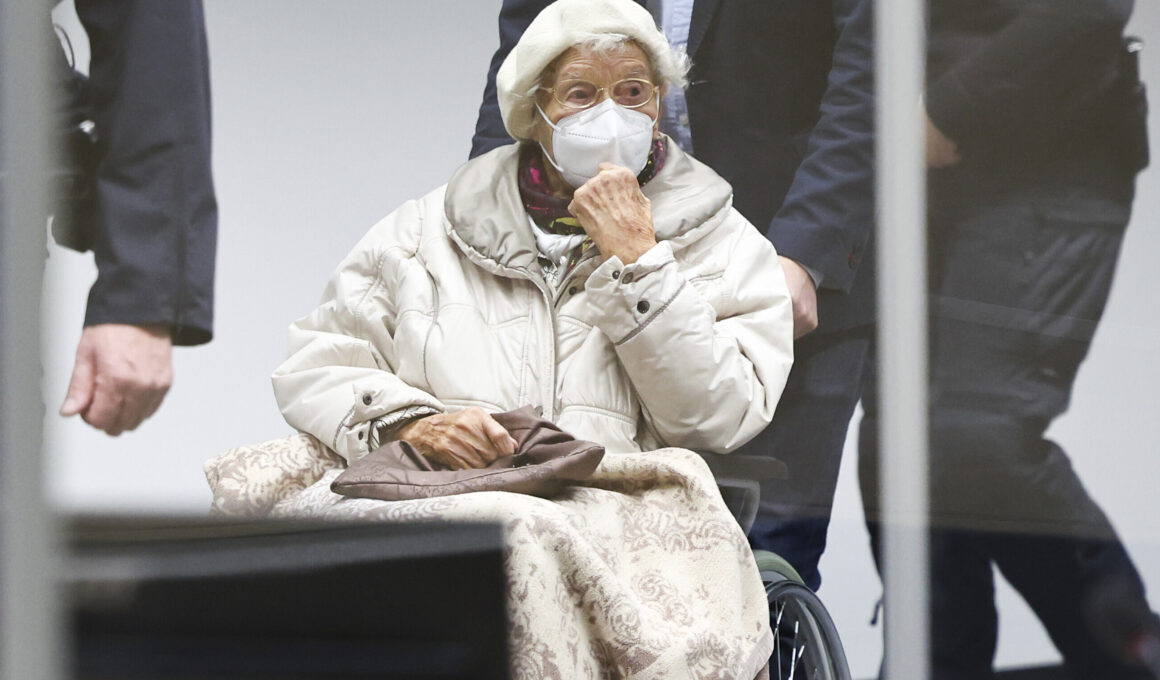A German court on Tuesday upheld the conviction of 99-year-old Irmgard Furchner, who was found guilty of being an accessory to over 10,000 murders during World War II.
Furchner served as a secretary to the SS commander at the Nazi Stutthof concentration camp.
Prosecutors have indicated that Furchner’s trial may be one of the last of its kind.
Furchner had her appeal rejected by the Federal Court of Justice, confirming the two-year suspended sentence handed down in December 2022 by a state court in Itzehoe, northern Germany.
She was convicted of being an accessory to 10,505 murders and five attempted murders, crimes that occurred between June 1943 and April 1945, when she worked as a stenographer in the commandant’s office.
During a federal court hearing in Leipzig last month, Furchner’s defense team questioned her involvement, suggesting she may not have been fully aware of the atrocities occurring at the camp.
The Itzehoe court said that judges were convinced that Furchner “knew and, through her work as a stenographer in the commandant’s office of the Stutthof concentration camp from June 1, 1943, to April 1, 1945, deliberately supported the fact that 10,505 prisoners were cruelly killed by gassings, by hostile conditions in the camp,” by transportation to the Auschwitz death camp and by being sent on death marches at the end of the war.
Germany’s Jewish community welcomed the court’s decision.
Josef Schuster, head of the Central Council of Jews, emphasized the importance of the ruling for Holocaust survivors, stating that it serves as a powerful reminder that justice, even decades later, remains essential.
“The legal system sent an important message today: even nearly 80 years after the Holocaust, no line can be drawn under Nazi crimes,” Schuster said.
The Furchner case follows a legal precedent set in 2011, when former Ohio autoworker John Demjanjuk was convicted as an accessory to murder for his role as a guard at the Sobibor death camp.
Demjanjuk, who denied the allegations, died before his appeal could be heard.
This marked a shift in how German courts handle such cases.
German courts previously required prosecutors to justify charges by presenting evidence of a former guard’s participation in a specific killing, often a near-impossible task.
However, prosecutors successfully argued during Demjanjuk’s trial in Munich that helping a camp function was enough to convict someone as an accessory to murders committed there.
A federal court subsequently upheld the 2015 conviction of former Auschwitz guard Oskar Groening on the same reasoning.
A special federal prosecutors’ office in Ludwigsburg tasked with investigating Nazi-era war crimes says three more cases are pending with prosecutors or courts in various parts of Germany.
With any suspects now at a very advanced age, questions increasingly arise over suspects’ fitness to stand trial.
Furchner was tried in a juvenile court due to her age at the time of the crimes—18 and 19 years old.
Judge Gabriele Cirener, presiding over the case, dismissed arguments that Stutthof’s status as a labor camp rather than a death camp like Auschwitz or Sobibor was relevant.
She said that the camp’s horrific conditions and forced labor amounted to the “cruel killing” of its inmates, regardless of whether they were immediately executed.
Originally established as a detention center for Jews and non-Jewish Poles displaced from Danzig, Stutthof later became a “work education camp” where forced laborers—primarily Polish and Soviet citizens—were sent to serve sentences, often resulting in their deaths.
From mid-1944, tens of thousands of Jews from ghettos in the Baltics and from Auschwitz filled the camp, along with thousands of Polish civilians swept up in the brutal Nazi suppression of the Warsaw Uprising.
Others incarcerated there included political prisoners, accused criminals, people suspected of homosexual activity and Jehovah’s Witnesses. More than 60,000 people were killed at the camp.







